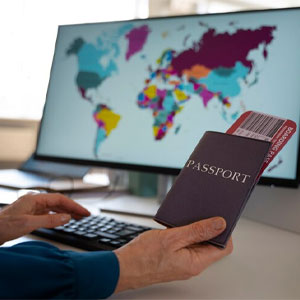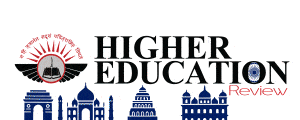Pathway to U.S. Residency: How the EB-1 and EB-2 Visas Support International Scholars and Researchers
 The United States continues to be a hub of innovation and academic excellence, attracting talented researchers, scholars, and graduate students from around the world. For international professionals in education and research, obtaining permanent residency offers not only stability, but also long-term career growth. The EB-1 and EB-2 visa categories provide ideal pathways to this goal, recognizing exceptional academic achievement and specialized expertise as key factors for eligibility. These visas help scholars transition from temporary programs such as J-1 to permanent residency, allowing them to make meaningful contributions to the U.S. education and research sectors.
The United States continues to be a hub of innovation and academic excellence, attracting talented researchers, scholars, and graduate students from around the world. For international professionals in education and research, obtaining permanent residency offers not only stability, but also long-term career growth. The EB-1 and EB-2 visa categories provide ideal pathways to this goal, recognizing exceptional academic achievement and specialized expertise as key factors for eligibility. These visas help scholars transition from temporary programs such as J-1 to permanent residency, allowing them to make meaningful contributions to the U.S. education and research sectors.
This article examines the ways in which the EB-1 and EB-2 visas facilitate U.S. residency for scholars and researchers. We will examine the required qualifications, discuss how accomplishments in education and science can expedite the process, and offer practical strategies for long-term immigration planning.
Benefits of EB-1 and EB-2 Visas for Researchers and Educators
EB-1 Visa: Extraordinary Ability and Outstanding Professor or Researcher
The EB-1 visa category is designed for individuals with extraordinary ability in their respective fields or for outstanding professors and researchers. It is ideal for scholars who can demonstrate a significant body of work that is nationally or internationally recognized. The EB-1 category is divided into three main subcategories relevant to scholars and researchers:
- EB-1A: Individuals of Extraordinary Ability Applicants must provide evidence of sustained national or international recognition, such as publications in top-tier journals, significant awards, or membership in prestigious academic organizations. This pathway allows individuals to self-petition without requiring a permanent job offer, giving scholars more autonomy.
- EB-1B: Outstanding Professors and Researchers This category requires a job offer from a U.S. university or research institution and is open to scholars with at least three years of teaching or research experience. Applicants must demonstrate that their work is recognized as outstanding in the field, as evidenced by publications, awards, or invitations to speak at conferences.
The EB-1 visa is highly advantageous because it does not require labor certification (PERM), making the process faster and less cumbersome than other employment-based visa categories. Scholars with significant accomplishments can use the EB-1 category to obtain a green card relatively quickly.
EB-2 Visa: Exceptional Ability and National Interest Waiver
The EB-2 visa for accomplished scientists is an attractive option for qualified scientists and researchers. It applies to individuals with either extraordinary ability or advanced degrees. While this visa is generally employer-sponsored, the National Interest Waiver (NIW) provision offers a unique pathway. Applicants who contribute to areas of significant national interest can bypass the labor certification process and expedite their application.
EB-2 Advanced Degree
Applicants must have a master's degree or higher in their field. Scholars with doctoral degrees are particularly well-suited for this category, especially if their research is aligned with U.S. priorities in key areas such as health care, technology, or renewable energy.
EB-2 National Interest Waiver (NIW)
Scholars and researchers who can demonstrate that their work will significantly benefit the national interest of the United States may apply for the NIW. This waiver exempts them from the standard job offer and labor certification requirements. The NIW is often used by scientists and educators involved in groundbreaking research, such as epidemiologists or climate researchers.
Both the EB-1 and EB-2 skilled worker visas provide streamlined pathways to permanent residence, rewarding scientific achievement and impactful research.
Transitioning from J-1 to EB-1 or EB-2: Opportunities for Graduate Students and Researchers
Many international scholars first enter the United States on a J-1 visa for academic exchange, postdoctoral research, or fellowships. However, because the J-1 visa is a non-immigrant visa with strict time limits, transitioning to a more permanent status is essential for those seeking to build long-term careers in the United States.
Graduate students and postdoctoral researchers often use their academic achievements to apply for EB-1 or EB-2 visas. J-1 visa scholars should consider the following strategies to ensure a smooth transition:
- Evaluate Achievements for EB-1 or EB-2 Eligibility Scholars should compile detailed documentation of their publications, citations, conference presentations, awards, and collaborative projects. If these accomplishments are internationally recognized, they may qualify for the EB-1 visa.
- Waiver of the Two-Year Home Residency Requirement Some J-1 visa holders are subject to a two-year home residency requirement, meaning they must return to their home country before applying for U.S. residency. However, this requirement can often be waived if the scholar can demonstrate that his or her work is in the national interest of the United States or that his or her contributions are essential to public health or research.
- Timing the Application Process It is advisable to begin the EB-1 or EB-2 application process well before the J-1 visa expires. Scholars should consult with immigration attorneys early to ensure timely preparation and submission of all required documents.
How Academic and Research Achievements Expedite the Green Card Process
Academic and research achievements play a key role in expediting the green card process. Scholars applying for EB-1 or EB-2 visas benefit from fewer bureaucratic hurdles compared to other visa categories. Here are examples of how certain accomplishments can expedite the application process:
- Publications and citations: A strong portfolio of peer-reviewed articles, along with high citation counts, signals the candidate's influence and authority in the field.
- International Awards and Recognitions: Prestigious awards, such as the Nobel Prize or a Fulbright Fellowship, strengthen the EB-1 petition by demonstrating the scholar's extraordinary abilities.
- Contributions to U.S. National Interests: Scholars whose work addresses critical issues-such as climate change, biomedical research, or public policy-can use the National Interest Waiver (NIW) to expedite their EB-2 petitions.
- Leadership in research or academia: Serving as a principal investigator or holding senior academic positions demonstrates that the applicant is among the top contributors in their field, increasing the likelihood of approval for EB-1 or EB-2 visas.
Practical tips for applicants include obtaining strong letters of recommendation from influential colleagues and collaborators, and ensuring that the application package reflects both the depth and breadth of the applicant's contributions.
Immigration Planning for Graduates and Educators: A Strategy for Long-term Success
Navigating the U.S. immigration process requires thoughtful planning, especially for scholars seeking long-term residency. Here are some strategic steps to maximize your chances of success:
- Build a Strong Academic Portfolio Scholars should actively seek opportunities to publish research, attend conferences, and collaborate with U.S. institutions. These activities not only build academic credentials, but also strengthen future visa applications.
- Identifying Potential Sponsors and Employers Securing a job offer from a U.S. university or research institution can greatly simplify the immigration process. Scholars should cultivate relationships with academic mentors and potential employers during their studies or research programs.
- Engaging experienced immigration attorneys ensures that scholars are well-prepared to navigate the complexities of the EB-1 or EB-2 application process. Experts can also provide valuable guidance on meeting the specific requirements of each visa category.
- Monitor Policy Changes U.S. immigration policies are subject to change, which may affect the eligibility criteria or processing times for EB-1 and EB-2 visas. Staying informed of policy updates ensures that scholars can adjust their immigration strategies accordingly.
- Preparing for long-term integration Achieving permanent residency is only the first step in building a fulfilling academic career in the U.S. Scholars should also consider professional development opportunities, networking within academic communities, and exploring opportunities for leadership in research or education.
Building Careers and Securing Residency with EB-1 and EB-2 Visas
The EB-1 and EB-2 visa categories offer international scholars and researchers a clear path to permanent residency in the United States. By leveraging academic achievement, professional experience, and strategic planning, scholars can transition from temporary visas such as J-1 to a green card and long-term success in the U.S. These visa options not only recognize the value of intellectual contributions, but also empower scholars to build meaningful careers while contributing to the advancement of education, research, and public policy.
For educators, scientists, and researchers seeking to establish themselves in the U.S., the EB-1 and EB-2 visa categories are powerful tools for turning scholarly achievements into long-term opportunities. With careful preparation and a well-executed immigration strategy, international professionals can secure a green card and thrive in the dynamic academic landscape of the United States.

